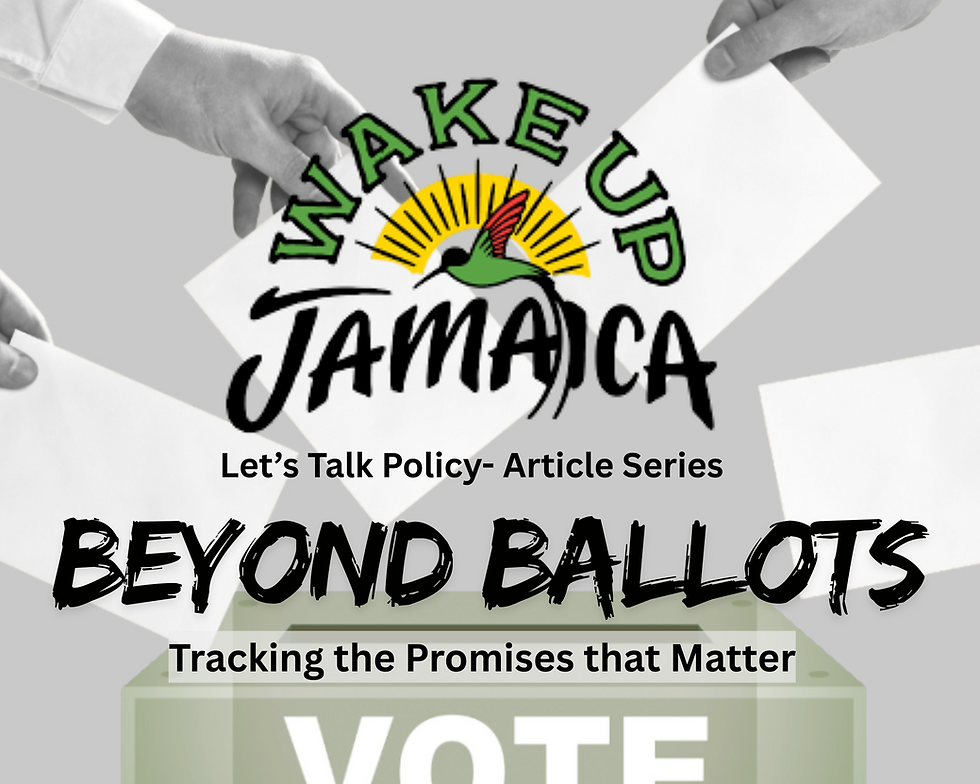Opportunity lost
- Sep 20, 2023
- 3 min read
August 15, 2023

Dear Editor,
Minister of Legal and Constitutional Affairs Marlene Malahoo Forte had a constitutional amendment tabled, debated, and passed in a single sitting of the House.
It increased by five years the retirement age of the director of public prosecution and the auditor general. Her defence of it in the face of wide public criticism showed a shallow grasp of the constitution and its protective emphasis on democracy. But democracy and its increase are what this whole reform of the constitution is about.
All she had to say was that the law allows it and that another approach was a discussion suitable for "another place and time", which was a throw-away response. Coming from the minister responsible for constitutional affairs it was, for Jamaica's future, not just disheartening, it was threatening.
The requirement demanded more than any other by our constitution for amendments is that, generally, such steps be given extensive and protracted deliberation. Malahoo Forte and the Government chose to ignore this and to argue instead, minimally and legalistically, that the law did not require it in this particular case.
I want to discuss here, however, not the Government's possible ulterior motive but the opportunity lost to extend democracy. Deliberation is a critical component of real democracy. And it has to be given time. Time for the views of others to be voiced, especially those of the people. Time for crucial information to emerge and be discussed on the issues and on those promoting or opposing different sides of the issues.
It is the tendency of those who acquire power to believe that once there's been an election and a majority acquires power democracy is sealed, wrapped, and delivered in the national mailbox. Not so. Not so at all. Election and majoritarian rule are only the first two steps, basic and essential ones to be sure, but just sufficient to put foot on the road to true democracy — rule by the people.
Free and fair is what we demand of democratic elections. Must not the entire process be ruled by those same two criteria? There must be the freedom that ensures that no individual or minority group is excluded from the deliberations and that no one takes part under threat — agree to this or else — or under compulsion.
And there must be fairness, the equality that ensures that most participants have the crucial information shared by others about the issues and about the politicians urging one policy or another. There must be time to debate and deliberate on them, to work towards some broad consensus, which is another required aspect of true democracy.
It is why the reform of our constitution requires an extended period of public education before any quick decision by the political parties or by Parliament is taken. Malahoo Forte had to be pulled back from such an intention by the protests made by civil society groups and individuals.
The inclusiveness demanded by democracy extends especially to minorities. Majority rule does not put an end to the rights enjoyed as human beings, both individually and grouped by common need or concern. Respecting such rights is not an easy task in the context of majority rule. All the same, true democracy will see to it that compromises are made so as to take these rights into account and respect them.
Horace Levy
halpeace.levy78@gmail.com
Taken from the Jamaica Observer




Comments